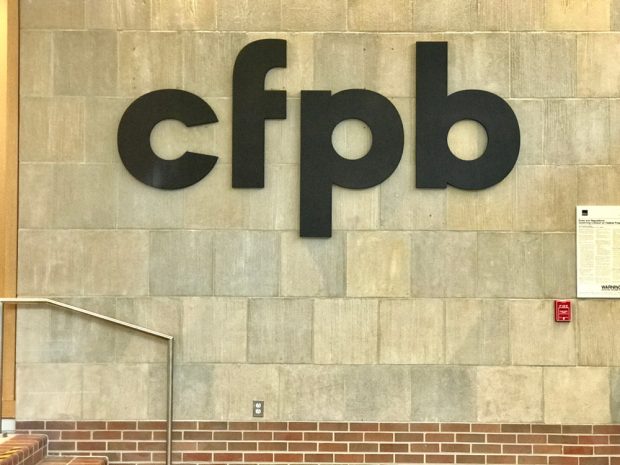 CFPB headquarters. Credit/Shutterstock
CFPB headquarters. Credit/Shutterstock
In response to a lawsuit filed by the American Bankers Association (ABA), the U.S. District Court for the Southern District of Texas granted a preliminary injunction to the CFPB's 1071 final rule, which would require data collection of certain loans. While the lawsuit is a temporary victory, the judge's decision to stop the implementation of the final rule applies to Texas Bankers Association and ABA members only and not credit unions.
Credit union officials with NAFCU and CUNA sent a letter Monday to CFPB Director Rohit Chopra requesting the bureau extend the final rule delay to include credit unions. The final rule on section 101 of the Dodd-Frank Act is scheduled to go into effect on Aug. 29.
Recommended For You
The letter authored by NAFCU Vice President of Regulatory Affairs Ann Petros and CUNA Deputy Chief Advocacy Officer and Managing Counsel Alexander Monterrubio stated, "While the Court determined that a limited injunction was appropriate based on the facts offered by plaintiffs, we ask that you consider a broader set of circumstances that prioritizes consistency in the implementation of this rule as the collection of reliable data regarding small business lending requires consistent reporting among covered financial institutions to ensure fair and accurate peer comparisons."
The letter continued, "From a practical standpoint, the Order provides plaintiffs and their members with substantial regulatory relief — allowing banks to extend implementation timeframes and postpone the upfront cost of system upgrades and staff training. Many credit unions are afforded no such relief despite being, on average, substantially smaller than the average bank."
Of note, the CUNA-NAFCU letter argued that since the Supreme Court is scheduled to hear arguments concerning the constitutionality of the CFPB in October "extending injunctive relief to all covered financial institutions under the same terms as the Order should not cause significant disruption to the Bureau's own implementation timeline. Furthermore, broadly applicable injunctive relief will help simplify communications and actions that may be required when that case is decided."
© 2025 ALM Global, LLC, All Rights Reserved. Request academic re-use from www.copyright.com. All other uses, submit a request to [email protected]. For more information visit Asset & Logo Licensing.








